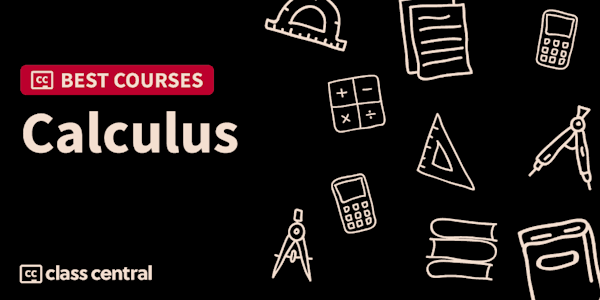Overview
The focus and themes of the Introduction to Calculus course address the most important foundations for applications of mathematics in science, engineering and commerce. The course emphasises the key ideas and historical motivation for calculus, while at the same time striking a balance between theory and application, leading to a mastery of key threshold concepts in foundational mathematics.
Students taking Introduction to Calculus will:
• gain familiarity with key ideas of precalculus, including the manipulation of equations and elementary functions (first two weeks),
• develop fluency with the preliminary methodology of tangents and limits, and the definition of a derivative (third week),
• develop and practice methods of differential calculus with applications (fourth week),
• develop and practice methods of the integral calculus (fifth week).
Syllabus
- Precalculus (Setting the scene)
- This module begins by looking at the different kinds of numbers that fall on the real number line, decimal expansions and approximations, then continues with an exploration of manipulation of equations and inequalities, of sign diagrams and the use of the Cartesian plane.
- Functions (Useful and important repertoire)
- This module introduces the notion of a function which captures precisely ways in which different quantities or measurements are linked together. The module covers quadratic, cubic and general power and polynomial functions; exponential and logarithmic functions; and trigonometric functions related to the mathematics of periodic behaviour. We create new functions using composition and inversion and look at how to move backwards and forwards between quantities algebraically, as well as visually, with transformations in the xy-plane.
- Introducing the differential calculus
- This module introduces techniques of differential calculus. We look at average rates of change which become instantaneous, as time intervals become vanishingly small, leading to the notion of a derivative. We then explore techniques involving differentials that exploit tangent lines. The module introduces Leibniz notation and shows how to use it to get information easily about the derivative of a function and how to apply it.
- Properties and applications of the derivative
- This module continues the development of differential calculus by introducing the first and second derivatives of a function. We use sign diagrams of the first and second derivatives and from this, develop a systematic protocol for curve sketching. The module also introduces rules for finding derivatives of complicated functions built from simpler functions, using the Chain Rule, the Product Rule, and the Quotient Rule, and how to exploit information about the derivative to solve difficult optimisation problems.
- Introducing the integral calculus
- This fifth and final module introduces integral calculus, looking at the slopes of tangent lines and areas under curves. This leads to the Fundamental Theorem of Calculus. We explore the use of areas under velocity curves to estimate displacement, using averages of lower and upper rectangular approximations. We then look at limits of approximations, to discover the formula for the area of a circle and the area under a parabola. We then develop methods for capturing precisely areas under curves, using Riemann sums and the definite integral. The module then introduces indefinite integrals and the method of integration by substitution. Finally, we discuss properties of odd and even functions, related to rotational and reflectional symmetry, and the logistic function, which modifies exponential growth.
Taught by
David Easdown
Tags
Reviews
5.0 rating, based on 6 Class Central reviews
4.8 rating at Coursera based on 3720 ratings
Showing Class Central Sort
-
This happened to be my first course on Coursera. The content is nicely presented, and the examples are relevant and revealing. All in all, an excellent course.
-
This was a very well taught course by an enthusiastic professor who genuinely cared about his students' grasp of the material. I found the 'reading notes' to be especially useful for review and complete understanding of the concepts. Unlike the discussion forums in other courses, this one was very active with the professor and his assistants immediately answering learners' questions. I highly recommend this course to everyone who might want to learn about the basics of Calculus.
-
The best course on calculus. Prof. DAVID EASDOWN taught the concepts from a basic level to advanced level . What a man he is, Calculus is on his fingerprints. This course may seem small to you, but you will learn so much from this course that you learn in one year in college. One more thing you will find in quizzes that every question has it's own concept. Which benefits more to understand the concepts deeply.
Again,Looks like short but broad concept wise and content wise.
Vinay Singh -
This is the best calculus course on the web. Prof starts from the beginning and explains all the concepts really well . In course Prof explains calculus in five weeks span which normally would take 1 year. Amazing course!
-
I never thought Calculus can be so subtly explained but Mr Easdown changed my mindset.
Sir explained the concepts very clearly and made them look so easy.
I can't wait to enrol in more courses offered by him.
Thanks Coursera and Mr.David Easdown for this amazing learning experience. -
A very good beginner course for calculus. This allows for all revision and new fresh look on the stale calculus. The forums is very much active with all good discussions and hints.








